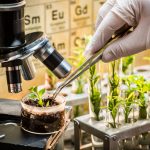A Research conducted by the Centenary Institute in Sydney has found a brand-new target for treating drug-resistant tuberculosis; The scientists from Centenary Institute have revealed that the tuberculosis bacterium hijacks platelets from the body’s blood clotting system and weaken the immune system.
Tuberculosis is far from eliminated around the world and still infects millions around the world and more than 1,400 people per year in Australia. It is among the top 3 causes of death for women aged 15 to 44. Antibiotic resistant tuberculosis is predominantly deadly and expensive to treat, costing up to $250,000 to treat a single case in Australia. Scientists at the Centenary Institute have been working on new ways to treat tuberculosis by increasing the effectiveness of the immune system.

The zebrafish model of tuberculosis and fluorescent microscopy was used to observe the build-up of clots and activation of platelets around areas of infection. Dr Stefan Oehlers, senior author and head of the Century’s Immune-Vascular Interactions laboratory mentioned that the zebrafish gives a literal insight into disease processes by studying the cells interacting in real time.
Following their instinct that these platelets were being deceived by the infection into getting in the way of the body’s immune system, the researchers treated infections with anti-platelet drugs, including widely available aspirin, and were able to allow the body to control infection better to prevent hijacking.

It’s the first time they found that platelets worsen tuberculosis in an animal model. Anti-platelet drugs could be used to help the immune system fight off drug resistant TB as lead author of Journal of Infectious Diseases, and Research Officer in Centenary’s Immune-Vascular Interactions laboratory, Dr Elinor Hortler suggests.
There are over 1.2 million people in Australian alone living with latent tuberculosis, a non-infectious form of TB that puts them at risk of developing the active disease. Dr Hortler claimed that the study provided vital evidence that widely available aspirin could be used to treat patients with severe tuberculosis infection and save lives.



